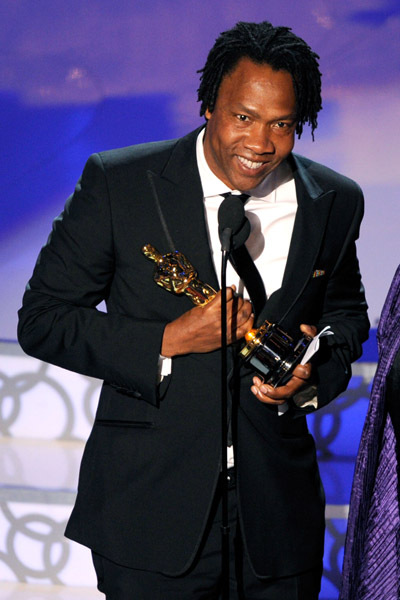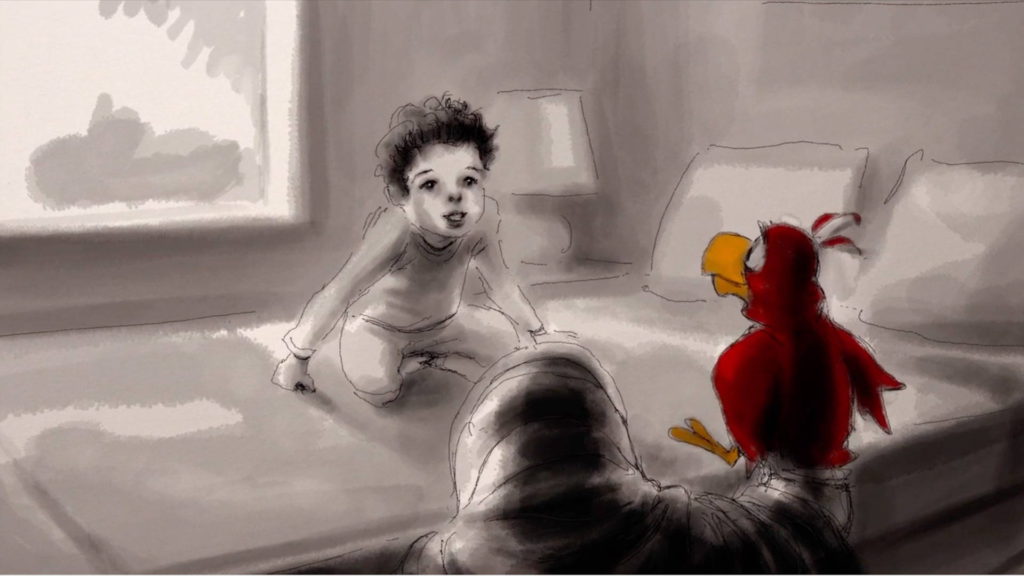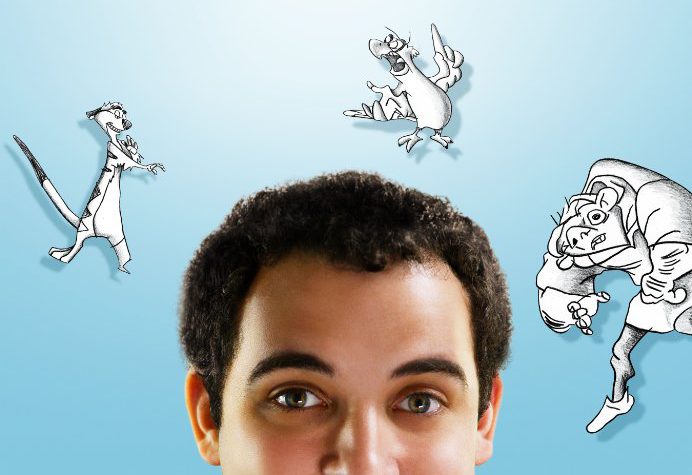An Interview with “Life, Animated” Director Roger Ross Williams
When you think about Disney and autism, you likely think of the on-going lawsuits against the parks involving alleged discrimination. But the story of Owen Suskind tells a much different story about the relationship between of the major media conglomerate and those on the austism spectrum. In Owen's case, the Walt Disney Company and their films have changed his life for the better and allowed him to communicate with his family in a way they feared would never be possible.
In Life, Animated, Oscar-winning director Roger Ross Williams introduces us to Owen and his passion for the Disney animated canon. The film not only shows us the road that Owen has taken to this point but also focuses on what proves to be a pivotal moment as he transitions from boyhood to adulthood and independence. Each step along the way, Williams shows respect for Owen's story and tells it with heart and beauty.
I recently had the chance to sit down with Williams and talk to him about the film's production, how he got to know the Suskinds, and when audiences across the nation will have the chance to see this wonderful film:
FanBoy: Congratulations on the release of this very inspiring documentary.
Roger Ross Williams: Thank you. It's very exciting to finally release it to the world and now I just hope and pray that people go to the theater and see it. It's hard to get people to the theater these days.
FB: Yeah. That's true. As we start, could you give us a little bit of background on yourself and how you got involved in this project?
RRW: Yeah. I've known the Suskinds for fifteen years. Ron and I were journalists at ABC when he was writing the book. He sent me the galleys of the book. He said, "I think this would make a great documentary." I was incredibly moved and, a few weeks later, I was shooting.
FB: That's quite impressive. A quick turnaround, huh?
RRW: Yeah. It's an amazing story and I realized that right off the bat... So inspiring and they're such a great family.
FB: We're a site for Disney fans and one thing that I think we have a chip on our shoulder sometimes because some people will view what we love about Disney films to be juvenile or unsophisticated. What did you learn about the power of Disney storytelling.
RRW: I learned so much about story because of Owen. I wasn't a Disney fan — I didn't even watch many Disney films growing up. What I really learned is that these stories, which are the classic myths and fables that have been told really for thousands of years, have been updated by Disney. In a sense, it made me think about how we all need these stories, these classic myths, to connect with one another as humans. That's what makes us human.
Owen, by growing up on a diet of myths and fables through these Disney films, he's really become almost a wise expert on what makes us human and what connects us all. I've gained this unbelievable appreciation of these films and what they tell us about the hero's journey and what they tell us about what connects us and makes us human. I think it's been transformative for me.

FB: Was it difficult to come up with the narrative to tell over the course of the film after you left the cameras rolling? How did you decide how you were going to piece it all together?
RRW: It wasn't that difficult because Owen was really about to go through. It was always about, for me, picking up where the book left off. It wasn't about telling a story that all happens in the past, it was telling a story that happens in the present. Owen was about to go through a transformative year in his life where he was graduating from school and he had fallen in love — all these universal things.
It was always a classic coming of age story for me. It's not so much a film about autism as it is a classic coming of age story about what it means to grow up and become independent. The stakes are just higher because Owen has autism. That was the classic structure and then I was always going to tell the back story, the parts of how he got there, in flashbacks.
By having that figured out, I knew that I was going to hit these big moments in his life like moving out, moving into his own apartment, and graduating — all these big moments. There's some things that happen that you don't expect, but, still, those moments help tinker the film.
FB: What do you hope the audience takes away from the documentary?
RRW: I hope the audience comes away like audiences have been coming away from the film with a new understanding that people like Owen. You pass someone like Owen on the street, you tend to look the other way, you tend to ignore them. Owen and people like him have so much to offer us as a society. We're losing out if we don't listen and look and get to know people with autism. Owen is such a brilliant, brilliant person with so much to offer us.
He's an expert in story and myths and fable and an expert in life. I want people to walk away with a new understanding of what it means to live with autism and the power. Also, I want them to walk away with a new understanding of the power of story in all of our lives. I think as we've been screening at film festivals around the country, it's amazing because people will come up to me and they'd be like, "I never understood autism. I totally get it." That's really great. That's really amazing.
FB: We wish you the best as you roll it out in New York and L.A., right? July 1st?
RRW: Yes. In New York and L.A... Please spread the word and let people know about it. I think when people see it, then they get it and they tell their friends. It's just getting people to see it. On the 8th, it rolls out to more cities and more cities. It's a tour so we'll be playing all across the country.



